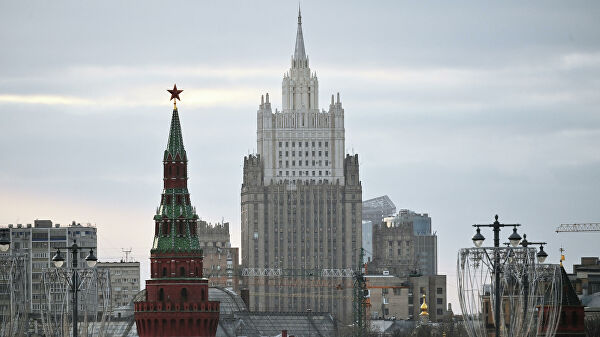Russian Deputy Foreign Minister Sergey Ryabkov criticized Washington's decision to abandon the Open Skies Treaty, which was designed to boost transparency of defense activities among member states and reduce the risk of military miscalculations that could lead to war.
On the sidelines of virtual talks on Russia-US relations organized by the Gorchakov Public Diplomacy Support Fund on Friday, the deputy minister warned that the move by the US may contribute to the break-up of an already fragile global security system that has been weakened from the suspension of the Intermediate-Range Nuclear Forces Treaty (INF).
"On August 2, 2019, the U.S. completed unilateral withdrawal from the Intermediate-Range Nuclear Forces Treaty, and it broke up as a result," Russia's state-owned RIA Novosti news agency quoted Ryabkov as saying during the discussion. "The break-up of this treaty that was largely crucial to the strategic stability became yet another step in the Americans dismantling the architecture of international security. Their accusations against Russia of lack of compliance with this document served as a pretext to quit it. Especially since nobody in Washington ever showed any facts to back up their claims."
"Yesterday, we literally saw the same approach and repetition of the same behavioral model on the Open Skies Treaty," Ryabkov added.
Fears of a second arms race between Russia and the US have resurfaced after US President Donald Trump announced on Thursday his plan to pull his country out of another arms control treaty, citing concerns that Russia has been violating its terms.
Trump's comments were followed by a press statement by US Secretary of State Mike Pompeo, in which he said the US will submit a notice on Friday that it is withdrawing from the Treaty on Open Skies in exactly six months, indicating that Washington may reverse its decision to withdraw from the treaty if Russia decides to comply with the agreement.
"Rather than using the Open Skies Treaty as a mechanism for improving trust and confidence through military transparency, Russia has, therefore, weaponized the Treaty by making it into a tool of intimidation and threat," Pompeo said in the statement issued by the US Department of State on Thursday. In particular, he accused Russia of using Open Skies to target critical infrastructure in the US and Europe with precision-guided conventional munitions.
Russia's Deputy Minister of Foreign Affairs Alexander Grushko, in turn, denied Washington's accusations that Moscow had repeatedly violated the treaty.
"We reject any attempts to justify a way out of this fundamental agreement," RIA Novosti quoted Grushko as saying on Thursday, adding that nothing would prevent discussions over the technical issues, which he says the US is misrepresenting as violations by Russia.
Ratified in 2002, the Open Skies Treaty allows for surveillance flights to be carried out over the 34 countries that are party to the agreement, including Russia and NATO members, to monitor and collect data on each other’s military activities. The major international agreement - first proposed by President Dwight Eisenhower and signed by President George H.W. Bush - has long been considered a stabilizing force, especially for nations that lack spy satellites or other high-tech means to monitor military facilities.
Decades after the end of the Cold War, tensions remain between Washington and Moscow. Relations hit a low point following the Ukraine crisis in 2014 and the US presidential election two years later, which saw allegations of Russian interference. The disagreement between the two nuclear powers continued as both countries stopped complying with the INF Treaty - an arms control agreement that prohibited the Soviet Union, and subsequently Russia, and the US from producing or test-flying ground-launched nuclear cruise and ballistic missiles having a range of 500 to 5,500 kilometers, or roughly 300 to 3,400 miles.
With the suspension of the INF treaty, the world is left with only the New Strategic Arms Reduction Treaty, known as "New START" - the last major arms control agreement keeping the two countries from launching a new arms race, which is set to expire in February 2021.







 Azerbaijan and Armenia started the process of demarcation of their border on Tuesday, with the installation of the first border markers based on ge...
Azerbaijan and Armenia started the process of demarcation of their border on Tuesday, with the installation of the first border markers based on ge...
 Armenian sappers commenced on Monday mine-clearance operations in the territories adjacent to the Saint Mary Church in village of Voskepar (Armenia...
Armenian sappers commenced on Monday mine-clearance operations in the territories adjacent to the Saint Mary Church in village of Voskepar (Armenia...
 President Aliyev emphasized the critical role of the North-South Transport Corridor in fostering transport cooperation between Azerbaijan and Russi...
President Aliyev emphasized the critical role of the North-South Transport Corridor in fostering transport cooperation between Azerbaijan and Russi...



